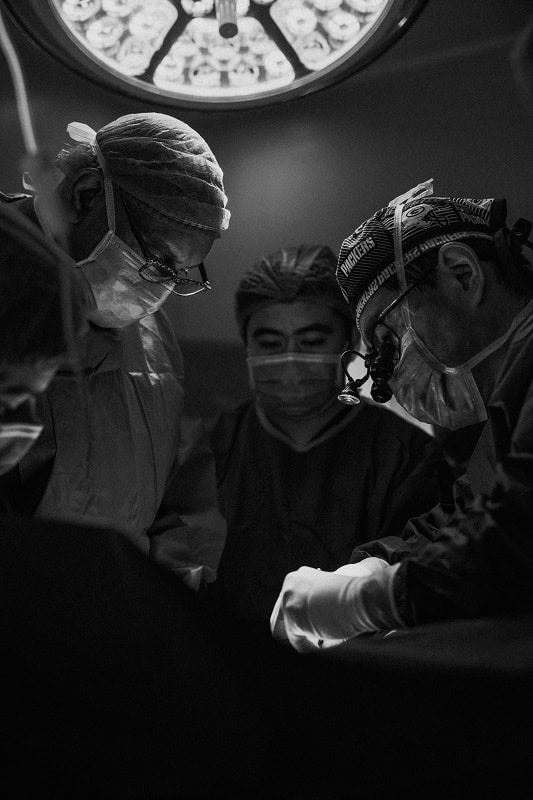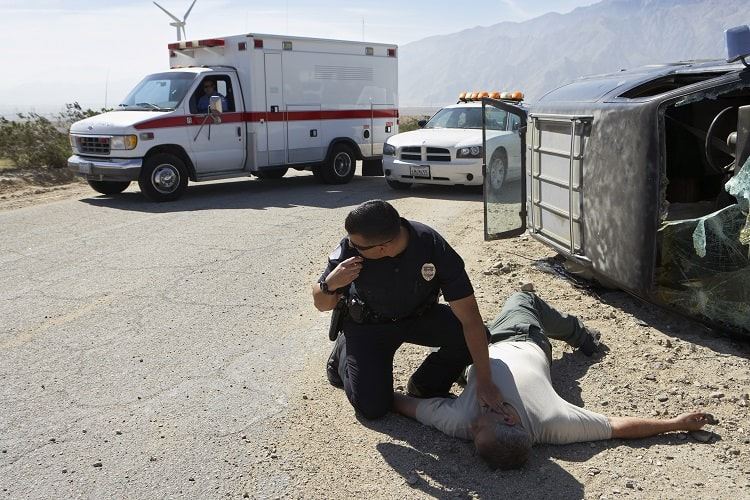Common “after car accident symptoms” can develop in a range of timeframes. Sometimes you won’t experience any symptoms for a few days or weeks. Especially when your body has had a substantial shock, certain injuries are effectively hidden from you.
 Adrenaline is one of many natural biological responses to shock. Sometimes this can drop blood pressure dangerously low. There are many complicated things going on in the human body when an injury occurs. Even the best medical professionals are subject to error. Sometimes injuries can be compounded. Sometimes, after car accident symptoms can’t even be determined except through lengthy observation. This can be especially true with head trauma.
Adrenaline is one of many natural biological responses to shock. Sometimes this can drop blood pressure dangerously low. There are many complicated things going on in the human body when an injury occurs. Even the best medical professionals are subject to error. Sometimes injuries can be compounded. Sometimes, after car accident symptoms can’t even be determined except through lengthy observation. This can be especially true with head trauma.
If you’ve been in a car accident and injured, once you’re safe enough, it’s wise to find legal protection. Car accident symptoms appearing after could very well constitute injuries that result from the negligence of others or even the state. A bad pothole can cause a wreck, damaging you, your property, and the roadway. Someone should be held responsible for that kind of negligence, and there are times when it takes a trial attorney like those at Crawford Law to do the job.
The After Car Accident Symptom Timeline
After car accident symptoms can take days or even months to manifest–as is the case with psychological symptoms. Medical opinions may be called-upon during a courtroom trial to hold insurance companies, city planners, or corporations responsible. A negligent individual could themselves have resources and hire strong legal protection against you. In fact, any of the outlined scenarios are likely to result in a trial where opposition lawyers seek to sidestep justice through plea bargains settled out of court.
What they’re offering may not be nearly enough to cover injuries that develop after a car accident–symptoms that may not indicate the future suffering one could be forced to endure. Lifelong complications can result, especially when it comes to TBIs or Traumatic Brain Injuries. These have a level of unpredictability to them. Therefore, a trial attorney is key to assuring you receive the maximum possible compensation for your injury.
Accordingly, there are notable questions pertaining to legal cases involving after car accident symptoms you may want to ask yourself. Consider the following:
- Were Authorities Notified, By Whom?
- Did You Seek Medical Attention, When?
- Did You Or Loved Ones Get Comprehensive Documentation?
- Is There An Associated Life-Threatening Condition?
Were Authorities Notified, By Whom?
 Even if you’ve had a TBI, you may retain some level of cognitive function. Shock and adrenaline can often carry a person through severe trauma toward survival. Sometimes the first person who can contact the authorities is you. Other times, you’re injured to the point where you don’t retain consciousness until you wake up in a hospital. In that case, who contacted the authorities, and where’s the record?
Even if you’ve had a TBI, you may retain some level of cognitive function. Shock and adrenaline can often carry a person through severe trauma toward survival. Sometimes the first person who can contact the authorities is you. Other times, you’re injured to the point where you don’t retain consciousness until you wake up in a hospital. In that case, who contacted the authorities, and where’s the record?
Many who are injured aren’t up to making such investigations from the hospital bed. One of the most unfortunate after car accident symptoms isn’t biological, but rather, economic. When you’re vulnerable, dealing with medical institutions can result in hefty expenses you may not be able to pay. It is hard to heal when they saddle you with this additional stress. You’ll need a court to straighten it out, and a most likely, a trial.
If possible, it’s wise to know a lawyer you trust. Construct a sort of legal “insurance plan” in case of a severe accident. Even if you haven’t thought this far in advance, contacting an attorney in the wake of an accident can be the right thing to do. Most importantly, do this if you’re experiencing frequent or serious symptoms. Photographs and medical records could be key in a trial. Authorities are likely to have collected them during the accident. You may need to acquire legal access to items like this for a trial.
Did You Seek Medical Attention, and When?
If you sought medical attention for your after-car accident symptoms, it sometimes plays a part in a trial. It will depend on just what sort of symptoms you exhibit. Here are some notably common after car accident symptoms:
- Headaches
- General Pain in the Back
- Uncharacteristic Numbness
- Post-Traumatic Stress Disorder
- Swelling Around the Abdomen, Associated Pain
- Shifts in Personality, Or Improper Physical Functioning
- Pain in The Neck or Shoulders – Stiffness Associated with Whiplash
 All these symptoms after a car accident could seriously represent a loss in quality of life that may entitle you to compensation. When you lose some function of your body, pursuing a trial to justice is achievable. Crawford Law attorneys are experienced in this area, and regularly litigate cases involving after car accident symptoms.
All these symptoms after a car accident could seriously represent a loss in quality of life that may entitle you to compensation. When you lose some function of your body, pursuing a trial to justice is achievable. Crawford Law attorneys are experienced in this area, and regularly litigate cases involving after car accident symptoms.
Pain in the neck or shoulders could be a result of whiplash. It’s possible you could have some level of nerve damage. The cost of getting associated symptoms evaluated could be high. And these things take time to manifest–as does personality shifts from PTSD. Say the breadwinner of the family had an especially terrible wreck resulting in psychological complications initiating crippling panic attacks behind the wheel. According to some research, over a third of those who’ve had accidents experience some level of PTSD.
Did You or Loved Ones Get Comprehensive Documentation
Sometimes after car accident symptoms are difficult to establish in court without proper documentation. Someone who just had an accident and has been injured enough to require a painkiller may make decisions that aren’t necessarily the best. Hospitals may be in a position where they must respect those decisions. People can act irrationally in the face of a serious injury.
Corporations and state-run institutions deal with bureaucracy. This can also have irrational consequences that may initiate further damages. Imagine a hospital treating someone with Percocet, then allowing them to self-discharge.
That could be negligent if it were evident a psychological evaluation should have taken place. There could be a case. Documentation is key in securing justice in such instances. Legal assistance and the firepower a trial attorney brings may be your only way of gaining access to such documentation.
Is There an Associated Life-Threatening Condition?
Some car accident symptoms creep up on the victim. Abdominal pain or swelling may indicate internal bleeding. Bruises are burst blood vessels just under the skin. Very deep purple bruises may indicate internal bleeding.
The full effect of this damage can take days or weeks to manifest, depending on severity. Usually, it will be a few days, but there are almost always medical exceptions. Often, internal bleeding is life-threatening.
Diagnosis and treatment at medical facilities equal to the task represent fundamental priorities. Sometimes the institution where you received initial treatment may have missed something. Sometimes it’s just not possible to know there’s anything further to worry about for a few days. Get a few checkups after an accident and be sure to pass relevant information along to your attorneys.
Making Fullest Recovery from After Car Accident Symptoms
Not all after car accident symptoms are permanent; some are. Because of how the body works, delayed symptoms are common. Documentation is key, as is legal representation from trial attorneys who understand the stakes. Crawford Law makes it their mission to seek comprehensive justice for clientele; even including symptoms that aren’t evident until after an accident.
The post After Car Accident Symptoms Arrive, Questions Follow appeared first on Crawford Law.

